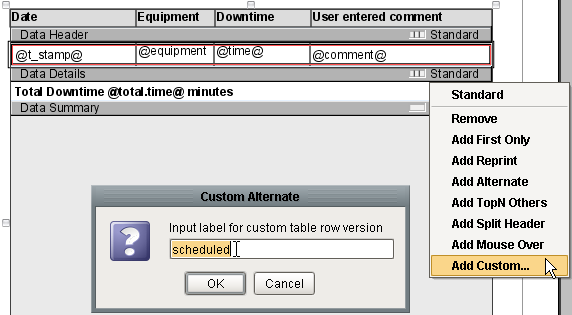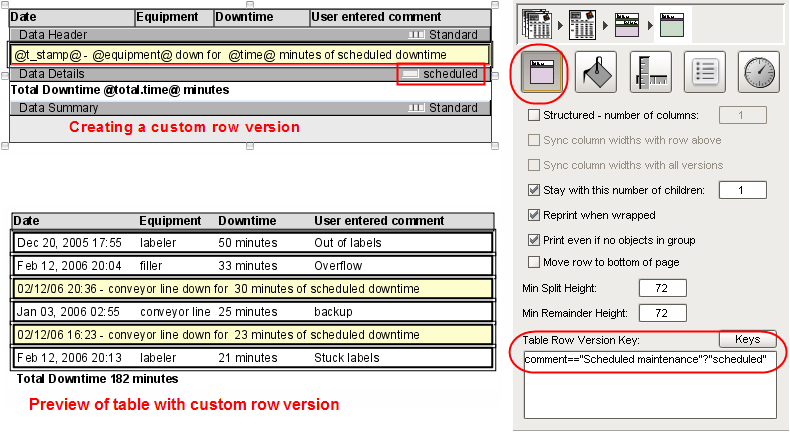|
Row versions allow you to conditionally display rows of data in different format. They are used to make certain data stand out or to make your report more legible.
Row versions are either builtin or user defined and may be specified with a version key expression. They are applicable to header, detail, and summary rows
Builtin Row Versions
By default reports use the Standard row version. Here are the builtin row versions:
Built in Version
|
Description
|
Standard
|
Default row version
|
Alternate
|
Applies every other row. Good for grey-bar reports by changing the background color.
|
Reprint
|
Applies every page after the first. Good for one time headers or (continued) indications to save space.
|
First Only
|
Applies only to the first instance of the row. Good for showing header information without using an upper level detail row.
|
TopN
|
Applies to count number of rows in a TopN sort. Using "include others" will then distinguish between TopN and non-TopN rows.
|
Split Header
|
Applies to headers that has been split due to excessive height. Good for providing "Continued" type indicators.
|
Running (Footer)
|
Provides a different footer row for a table whose data extends to the next page.
|
Mouse Over (N/A)
|
Used for interactive highlighting in flash based reports. (Not applicable at this time).
|
User Defined Row Versions
User defined row versions are identified by a string based name. They will be used when the Row Version Key expression is a string that matches the row version name.
Row Version Key
The Row Version Key is an expression that must return a string. If that string equals the name of a row version, either builtin or user defined, that version will be used. An invalid string will default back to normal builtin row version behavior.
Example
| 1. | Add a custom row version. scheduled, in this case. |
| 2. | Select your row and customize it |
| 3. | Specify Table Row Version Key. Tip: start with the expression "scheduled" to try out your custom row version before using more complex expressions. In this case we use: IF comment = "Scheduled maintenance" THEN use our custom row version. |
TIP
|
When using an IF condition for row versioning leave out the ELSE. Your table will then still respect builtin row versions. If you defaulted the ELSE to "Standard", none of the builtin versions such as Alternate would ever appear.
|

Add a custom row version

Previous (Table sorting) Next (Table grouping)
TIP
|
Make sure that you're happy with the Standard row version before you create other row versions. This will save you time as other versions begin as a copy of Standard.
|
| ![]() Tables - Row Versioning
Tables - Row Versioning